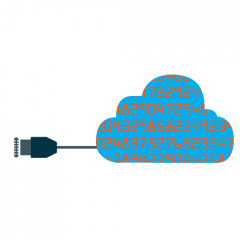Who: The French Cour de Cassation (Supreme Court)
Where: Paris, France
When: 21 February 2017
Law stated as at: April 2017
What happened:
On 9 November 2011, the French TV show Rive Droite was broadcast in France on TV channel “Paris Première” as well as on replay on the TV channel’s website. The format of the show usually involves guests (being celebrities of some degree of fame) discussing various topics around a dinner table. On this specific occasion, these guests were smoking cigarettes during the dinner. Following the broadcast of the show, the French association against tobacco (named “Droits des Non-Fumeurs”) commenced proceedings before the Paris Criminal Courts, arguing that the broadcast amounted to illegal advertising of tobacco products, and claiming €10,000 in damages.
Background:
Since the adoption of the French “Loi Evin” law in 1991, Article L. 3512-4 of the French Public Health Code (the Code) prohibits direct or indirect advertising of tobacco or tobacco products, and Article L.3512-8 of the Code further prohibits smoking in public areas.
In addition, the French Audiovisual watchdog, the “Conseil Supérieur de l’Audiovisuel” (CSA) has a long-standing tradition of considering that showing tobacco products or people smoking is permitted “in news programs (and related informative shows) and documentaries”, provided however that such images are not or cannot be interpreted as advertising in favour of tobacco. In 2011, the CSA criticised another French TV channel for broadcasting images of renowned French actress Catherine Deneuve smoking cigarettes with the TV show host, considering that the association of tobacco with a celebrity constituted in this context illegal advertising in favour of tobacco.
Proceedings:
The Association in this case brought proceedings before the French Criminal Courts (and not the CSA). In the first instance, the Court ruled that the broadcasting at stake did not constitute illegal advertising. However, on appeal, the Paris Court of Appeal decided otherwise and considered that the scene showed celebrities in a festive context and that smoking was presented in a favourable light, which constituted an illegal promotion of tobacco products. The Court of Appeal further pointed out that the TV channel could have easily excluded the smoking shots from the final editing of the show without such cuts impacting on the overall content of the show, especially as the show was neither a news program nor a documentary, making such editing not optional but necessary.
The TV channel escalated the ruling to the French Supreme Court (the “Cour de Cassation”), which decided that the Paris Court of Appeal reasoning was not compliant with the basic principles of advertising in support of tobacco under French law. The Cour de Cassation interpreted article L. 3512-4 of the French Public Health Code as meaning that the broadcast of people smoking in a TV show does not constitute illegal advertising in support of tobacco if such display “does not contain any image or statement aiming to or having the effect of promoting directly or indirectly tobacco”. As a result, the editing of the show was not necessary on this occasion.
Why this matters:
This decision may appear somewhat surprising, considering the rather conservative approach usually adopted by French Courts, which tend to make an extensive interpretation of what may constitute advertising in support of tobacco in France. However, the Cour de Cassation pointed out that there is a substantial difference between an advertisement for tobacco which has a commercial purpose and a TV show with no commercial purposes, which only aims at representing a convivial and festive dinner, without any positive act of promotion.
This ruling may therefore be positively welcomed by French TV channels wishing to broadcast TV shows of a similar nature to Rive Droite.








